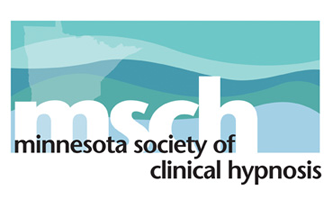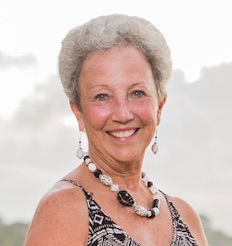April 29, 2023, 9-4:30 PM CST
Potpourri of Effective Hypnotic Skills and Techniques for Children and Adults
The following program offered by the Minnesota Society of Clinical Hypnosis has been approved for 6 CEUs towards ASCH membership and/or certification
Please join the Minnesota Society of Clinical Hypnosis in welcoming Linda Thomson for our 8th Annual Shep Myers Memorial Workshop via Zoom on Saturday April 29, 2023, as she presents a “Potpourri of Effective Hypnotic Skills and Techniques for Children and Adults.”
This event is being recorded, and will be available for two weeks to those who register.
| Date | Saturday April 29, 2023 |
| Time | 9 AM – 4:30 PM CST |
| ASCH Approved CEUs | 6 |
| Location | ZOOM |
| Member Cost | $85 |
| Non-Member Cost | $125 |
WORKSHOP REGISTRATION CLOSES APRIL 28TH 5 PM CST
Agenda – All Times CST
| 9 – 10:00 AM | MUPS “Medically Unexplained Physical Symptoms” |
| 10:00 – 10:30 AM | COMPISS & Ideomotor Signaling |
| 10:30 – 10:45 AM | BREAK |
| 10:45 – 11:15 AM | Ideomotor Practice |
| 11:15 – 12:15 PM | Preparation for Surgery |
| 12:15 – 1:15 PM | LUNCH |
| 1:15 – 3:00 PM | Giving Kids Skills instead of Pills |
| 3:00 – 3:15 PM | Key Elicitation |
| 3:15 – 3:30 PM | BREAK |
| 3:30 – 3:45 PM | Practice with Key Elicitation |
| 3:45 – 4:10 PM | Just Breathe |
| 4:10 – 4:20 PM | Practice with Breathing Techniques |
| 4:20 – 4:30 PM | Wrap Up |
Topic Description and Objectives
MUPS
Medically Unexplained Physical Symptoms are functional psychophysiologic disorders that may often be a metaphor for a problematic situation in a person’s life. Psychophysiologic disorders are frequently misdiagnosed. This workshop will include an effective approach for recognizing functional symptoms and creative strategies for treating psychophysiologic symptoms in children and adults. Videos and case studies will be presented.
Learning Objectives:
- Formulate an effective approach for recognizing functional symptoms
- Describe two examples of functional symptoms being a metaphor for interpersonal conflicts and emotions.
- Identify three ways hypnosis can be integrated into the treatment of patients with psychophysiologic disorders.
COMPISS and Ideomotor Signaling
The seven common causes of somatic disorders will be presented and discussed with case examples. Ideomotor signaling can be an effective means of uncovering the unconscious imprints that may contribute to the symptoms. There will be time for experiential practice setting up ideomotor signaling with fingers and pendulums.
Learning Objectives
- Define ideomotor phenomena/signaling
- Identify two clinically appropriate times to utilize ideomotor strategies
- Describe the seven common causes of psychosomatic symptoms
Preparation for Surgery
Research has shown that preparing patients hypnotically for surgery can have an enormous positive impact on both their surgical course and their recovery. Hypnosis can be very effective in enhancing the patient’s coping skills, reducing stress and anxiety, managing pain, and increasing a sense of self-mastery. This workshop will present a framework around which to create a script for a surgical patient that can be adjusted and personalized to meet the patient’s individualized needs.
Learning Objectives
- Identify three benefits of using clinical hypnosis pre-operatively with surgical patients.
- Describe the elements to be considered in hypnotic preparation for surgery.
- Discuss the literature concerning hypnosis and surgery.
Giving Kids Skills Instead of Pills
Long history and solid research has substantiated the therapeutic benefits of using hypnotherapeutic techniques for a variety of habit disorders in childhood. This session will include a review of the psychobiology of the conditioned, semiconscious behavior patterns that become habituated and difficult to extinguish. Attendees will learn to cultivate the positive forces of imagination, bypass natural resistance to change, and generate new patterns of consciousness when working with children with habit disorders. Effective hypnotic interventions for a variety of habit disorders will be discussed along with video demonstrations of hypnosis sessions. A metaphorical elicitation will be presented and then practiced in small groups.
Learning Objectives
- Identify three developmental characteristics that make children particularly hypnotizable
- Describe how hypnotic approaches vary according to developmental age
- Utilize hypnosis with children for at least two common habit disorders
Just Breathe
Life begins and ends with a breath. Breathing is the first physiologic function to change with emotion as our breath reacts to every internal and external stimulus. Breath constitutes the pivotal mind-body connection as it both influences and is influenced by mind and body. Breathing is not optional. Our patients are breathing anyway, therefore breath can be used to develop skills of self-regulation. The effectiveness of suggestions can be enhanced when timed with the breath. Multiple ways to teach breath work to both children and adults will be demonstrated and then practiced in small groups.
Learning Objectives
- Discuss how breath can be both unconscious/automatic as well as conscious and deliberated connecting both the inner unconscious and the outer conscious world.
- Describe how diaphragmatic breathing can be used to teach skills of self-regulation
- Demonstrate how to teach focused breathing exercises to both children and adults.
Biography
Linda Thomson has been a Pediatric Nurse Practitioner for nearly 5 decades. She is an Approved Consultant in Clinical Hypnosis, a Diplomate of both the American Board of Medical Hypnosis and the American Board of Hypnosis in Nursing and a Fellow of the American Society of Clinical Hypnosis. Linda is a past president of ASCH and was the Moderator of ASCH’s Board of Governors. She is a past president of the New England Society of Clinical Hypnosis and the current president of the Northeastern Mountain Society of Clinical Hypnosis.
Linda has published on a wide variety of subjects in professional journals in the United States, Europe, and Australia, has contributed book chapters, and is the author of 2 books on pediatric hypnosis: Harry the Hypno-Potamus: Metaphorical Tales for Children, Volume I and Volume II., Harry the Hypno-Potamus Imagination Cards and Learning the Lingo of Language Cards. She created “Stress Free Surgery: A Self Relaxation Program to Help Prepare for and Recover from Surgery.” She received the Josephine Hilgard Award for Best Paper on Pediatric Uses of Hypnosis. She received the Community Impact Award for her multimedia production of “COVID 19, a Hypno-Potamus and You” and the Outstanding Achievement Award for “Harry Goes to Help the Children of Ukraine” Linda was awarded the prestigious William Wester Award for her significant contributions to the field of hypnosis as applied to the treatment of children and research in the application of hypnosis with children. In 2022 ASCH awarded Linda the Lifetime Achievement Award.
Linda has lectured and taught workshops across the country and around the world. She is passionate about teaching health care professionals how to incorporate clinical hypnosis into their practices to help people help themselves.
Registration
If you are a member of MSCH and do not see the member registration below, please log in or renew your membership. If you have logged in and do not see the member price below, please refresh your browser (reload the page). After you have entered information on the registration below, you will be redirected to a page where you will be able to enter your credit card information.
Be sure that you add deb@msch.us to your email contact list to ensure that you receive all workshop notifications!
This workshop is being recorded. Participation in this webinar assumes participants have given their permission to be recorded. Recording may be archived and viewed by people not in attendance. For confidentiality purposes, please de-identify children/families/others you are discussing in the chat.
After you submit this form, you will be taken to our Stripe page where you can securely enter your credit card information. If you are not seeing the Stripe page after hitting “enter,” please check that your computer settings allow pop-ups.

